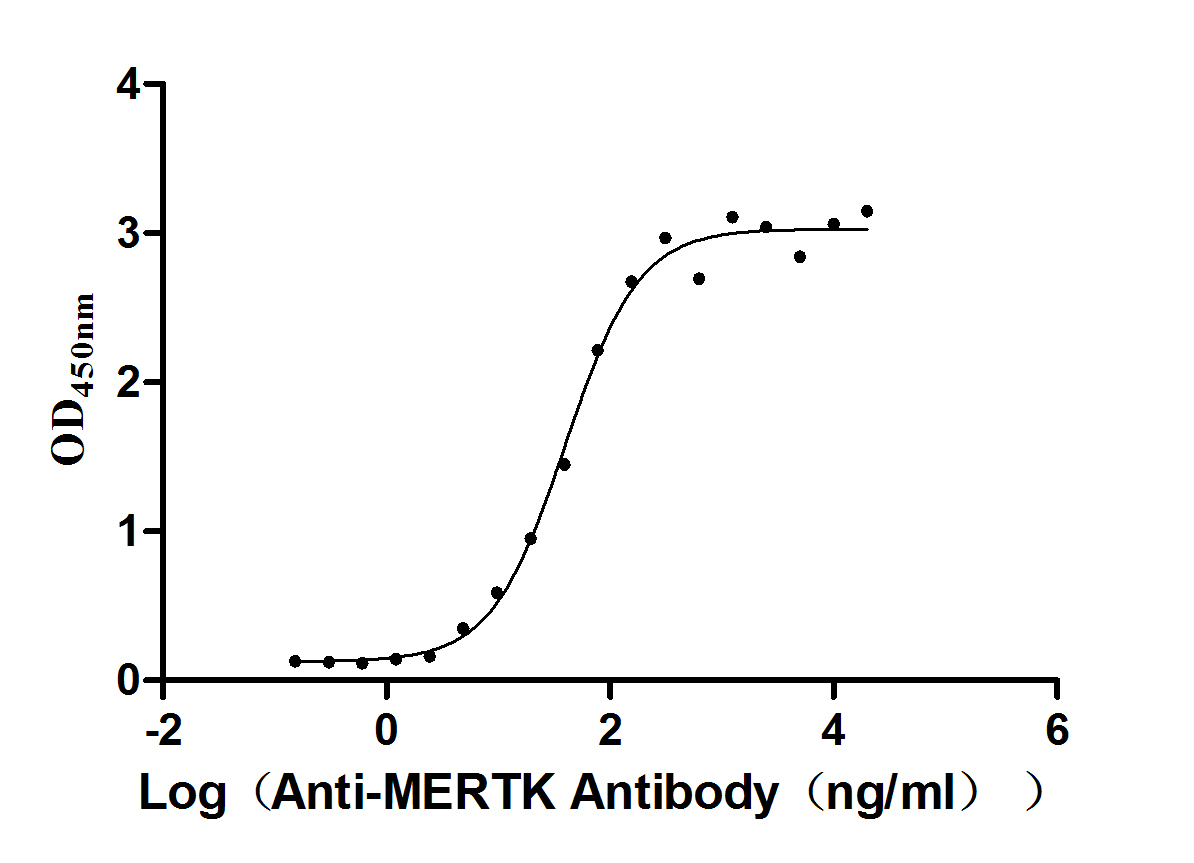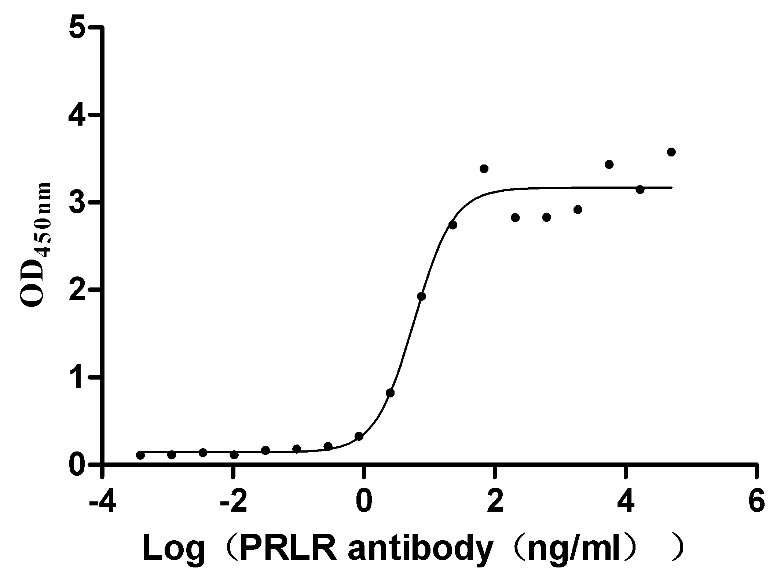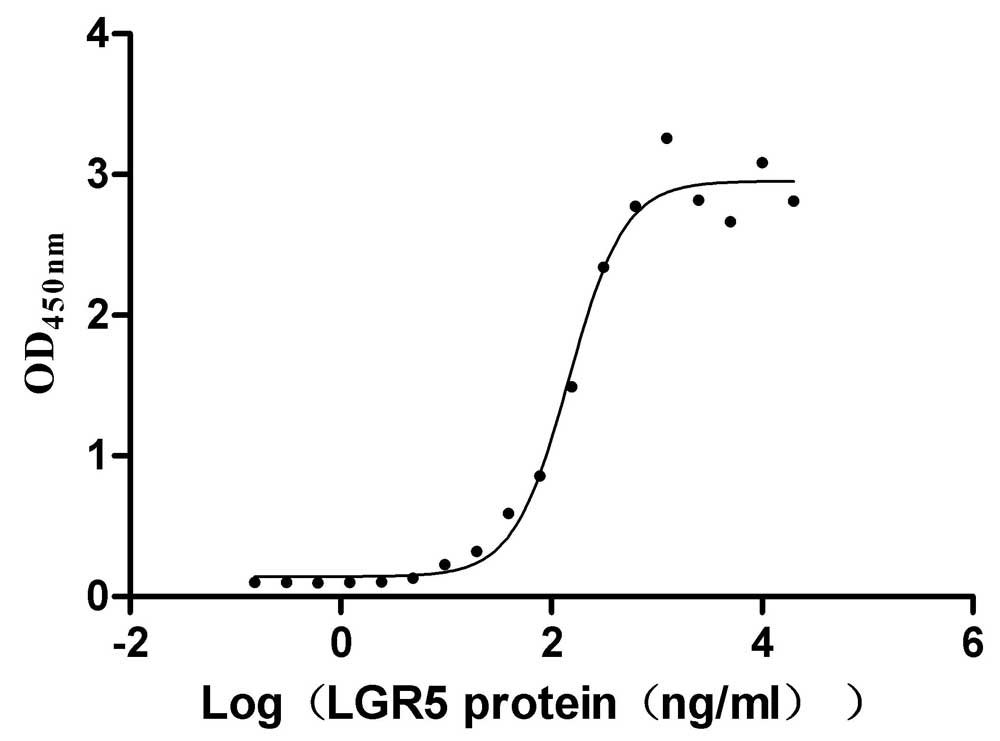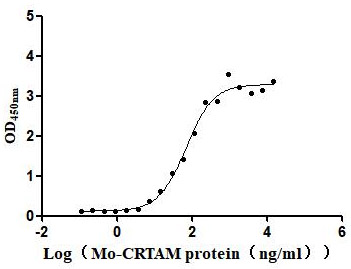Recombinant Mouse Tyrosine-protein phosphatase non-receptor type 5 (Ptpn5), partial
-
中文名稱:小鼠Ptpn5重組蛋白
-
貨號(hào):CSB-YP019042MO1
-
規(guī)格:
-
來(lái)源:Yeast
-
其他:
-
中文名稱:小鼠Ptpn5重組蛋白
-
貨號(hào):CSB-EP019042MO1
-
規(guī)格:
-
來(lái)源:E.coli
-
其他:
-
中文名稱:小鼠Ptpn5重組蛋白
-
貨號(hào):CSB-EP019042MO1-B
-
規(guī)格:
-
來(lái)源:E.coli
-
共軛:Avi-tag Biotinylated
E. coli biotin ligase (BirA) is highly specific in covalently attaching biotin to the 15 amino acid AviTag peptide. This recombinant protein was biotinylated in vivo by AviTag-BirA technology, which method is BriA catalyzes amide linkage between the biotin and the specific lysine of the AviTag.
-
其他:
-
中文名稱:小鼠Ptpn5重組蛋白
-
貨號(hào):CSB-BP019042MO1
-
規(guī)格:
-
來(lái)源:Baculovirus
-
其他:
-
中文名稱:小鼠Ptpn5重組蛋白
-
貨號(hào):CSB-MP019042MO1
-
規(guī)格:
-
來(lái)源:Mammalian cell
-
其他:
產(chǎn)品詳情
-
純度:>85% (SDS-PAGE)
-
基因名:
-
Uniprot No.:
-
別名:Ptpn5; Tyrosine-protein phosphatase non-receptor type 5; Neural-specific protein-tyrosine phosphatase; Striatum-enriched protein-tyrosine phosphatase; STEP
-
種屬:Mus musculus (Mouse)
-
蛋白長(zhǎng)度:Partial
-
蛋白標(biāo)簽:Tag?type?will?be?determined?during?the?manufacturing?process.
The tag type will be determined during production process. If you have specified tag type, please tell us and we will develop the specified tag preferentially. -
產(chǎn)品提供形式:Lyophilized powder
Note: We will preferentially ship the format that we have in stock, however, if you have any special requirement for the format, please remark your requirement when placing the order, we will prepare according to your demand. -
復(fù)溶:We recommend that this vial be briefly centrifuged prior to opening to bring the contents to the bottom. Please reconstitute protein in deionized sterile water to a concentration of 0.1-1.0 mg/mL.We recommend to add 5-50% of glycerol (final concentration) and aliquot for long-term storage at -20℃/-80℃. Our default final concentration of glycerol is 50%. Customers could use it as reference.
-
儲(chǔ)存條件:Store at -20°C/-80°C upon receipt, aliquoting is necessary for mutiple use. Avoid repeated freeze-thaw cycles.
-
保質(zhì)期:The shelf life is related to many factors, storage state, buffer ingredients, storage temperature and the stability of the protein itself.
Generally, the shelf life of liquid form is 6 months at -20°C/-80°C. The shelf life of lyophilized form is 12 months at -20°C/-80°C. -
貨期:Delivery time may differ from different purchasing way or location, please kindly consult your local distributors for specific delivery time.Note: All of our proteins are default shipped with normal blue ice packs, if you request to ship with dry ice, please communicate with us in advance and extra fees will be charged.
-
注意事項(xiàng):Repeated freezing and thawing is not recommended. Store working aliquots at 4°C for up to one week.
-
Datasheet :Please contact us to get it.
相關(guān)產(chǎn)品
靶點(diǎn)詳情
-
功能:May regulate the activity of several effector molecules involved in synaptic plasticity and neuronal cell survival, including MAPKs, Src family kinases and NMDA receptors.
-
基因功能參考文獻(xiàn):
- STEP plays an important role at nerve terminals in the regulation of Ca(2+) homeostasis and neurotransmitter release. PMID: 29508281
- STEP61 degradation is an important event in BDNF-mediated effects. PMID: 26223799
- STEP has a key role in the regulation of psychomotor action and physical dependency to morphine. These data suggest that STEP inhibition may be a critical target for the treatment of withdrawal symptoms associated with morphine. PMID: 26915673
- This study demonistrated that behavioral, molecular, and electrophysiological data indicate that spinal STEP61 plays a regulatory role in nociception. PMID: 26270590
- STEP61 regulates BDNF expression, with implications for cognitive functioning in CNS disorders. PMID: 26450419
- STEP contributes, at least in part, to the protection against the ingestion of aversive agents. PMID: 25992601
- These results indicate that STEP61 is a novel substrate of parkin, although further studies are necessary to determine whether elevated STEP61 levels directly contribute to the pathophysiology of PD. PMID: 25583483
- Abeta regulating STEP61 activity is mediated by Abeta binding to alpha7 nAChRs PMID: 24123152
- Increased STEP and calpain activation contribute to altered NMDAR localization in an Huntington's disease mouse model. PMID: 22523092
- genetically reducing STEP significantly diminishes seizures and restores select social and nonsocial anxiety-related behaviors in Fmr1(KO) mice PMID: 22405502
- Increased STEP61 plays a role in amyloid Abeta-mediated internalization of the (AMPAR) subunits GluA1/GluA2 (formerly GluR1/GluR2). PMID: 21883219
- The absence of STEP improves cognitive performance, and may do so by the regulation of downstream effectors necessary for synaptic transmission. PMID: 21501258
- STEP pathway is severely downregulated in the presence of mutant huntingtin and may participate in compensatory mechanisms activated by striatal neurons that lead to resistance to excitotoxicity. PMID: 21632937
- STEP may be required for ethanol's amnesic effects. PMID: 21464302
- Electrical stimulation of the hippocampal-entorhinal cortex pathway in STEP knockout mice resulted in less activation of the dentate gyrus granule cell layer (GCL), but greater activation of the hilus in STEP knockouts, compared with heterozygous slices. PMID: 21204826
- genetic manipulations to reduce STEP activity in a triple transgenic AD mouse model and show that a decrease in STEP levels reverses cognitive and cellular deficits observed in these mice. PMID: 20956308
- These results suggest that STEP is an important mediator in the dopamine D2R-mediated activation of ERK signaling and in the regulation of dopaminergic neuronal development. PMID: 18708052
- results reveal a novel mechanism by which Abeta-mediated accumulation of STEP61 results in increased internalization of NR1/NR2B receptor that may contribute to the cognitive deficits in Alzheimer's disease PMID: 20427654
- STEP increases the sensitivity of neurons to status epilepticus-induced excitotoxicity by specifically blocking a latent neuroprotective response initiated by the mitogen-activated protein kinase pathway. PMID: 17360923
- STEP regulates alpha-amino-3-hydroxy-5-methyl-4-isoxazolepropionic acid (AMPA) receptor internalization in hippocampal slices, synaptoneurosomes and primary neuronal cultures. PMID: 18923032
- Striatal-enriched protein tyrosine phosphatase (STEP) knockout mice show enhanced phosphorylation of extracellular signal-regulated kinase1/2 (ERK1/2) in the striatum, hippocampus and amygdala. PMID: 18932218
- These findings suggest a novel mechanism by which differential NMDAR stimulation regulates STEP(61) to promote either ERK1/2 or p38 activation and identifies calpain cleavage of STEP(61) as a valid target for the development of neuroprotective therapy. PMID: 19625523
顯示更多
收起更多
-
亞細(xì)胞定位:[Isoform STEP61]: Endoplasmic reticulum membrane; Multi-pass membrane protein.; [Isoform STEP46]: Cytoplasm.
-
蛋白家族:Protein-tyrosine phosphatase family, Non-receptor class subfamily
-
組織特異性:STEP20 is expressed only in the CNS.
-
數(shù)據(jù)庫(kù)鏈接:
Most popular with customers
-
Recombinant Human Tyrosine-protein kinase Mer (MERTK), partial (Active)
Express system: Mammalian cell
Species: Homo sapiens (Human)
-
Recombinant Human T-cell surface protein tactile (CD96), partial (Active)
Express system: Mammalian cell
Species: Homo sapiens (Human)
-
Recombinant Mouse Prolactin receptor (Prlr), partial (Active)
Express system: Mammalian cell
Species: Mus musculus (Mouse)
-
Recombinant Human R-spondin-1 (RSPO1), partial (Active)
Express system: Mammalian cell
Species: Homo sapiens (Human)
-
Recombinant Mouse Cell adhesion molecule 1 (Cadm1), partial (Active)
Express system: Mammalian cell
Species: Mus musculus (Mouse)
-
Recombinant Human Mucin-13(MUC13),partial (Active)
Express system: yeast
Species: Homo sapiens (Human)



-AC1.jpg)













